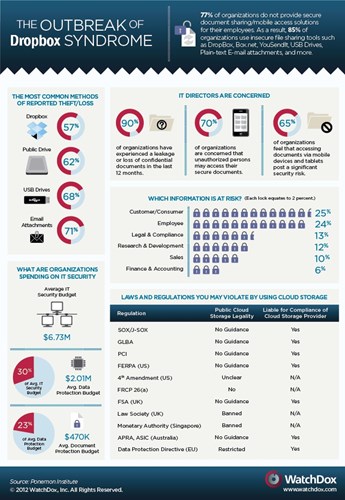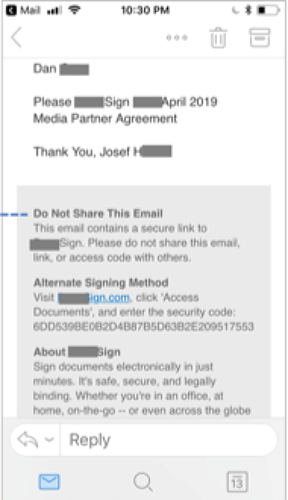BlockCerts Use Case Desk: The Shared Link Syndrome Epidemic

Flu season may be over, but there’s another illness sweeping over our companies today. This illness is crippling for businesses and even more dangerous for the safety and security of our employees, users, and wider communities.
Shared Link Syndrome is a contagious security issue that many businesses must confront at some point or another. The main symptoms include exposed data, exposed critical documents, and malicious targeting that puts other individuals at risk. In fact, 85% of businesses are exposing themselves to it, a recent study shows.
Many times, we won’t even know that we have it. In fact, your employees could be spreading the virus right now by simply using the most popular apps on their own – ouch.
DocuSign Data Breach
Shared Link Syndrome is a disease we diagnosed after taking a good hard look at the signature and File Sharing world today. The reality is, not everyone has your best business interests in mind and unfortunately, this has been proven time and time again. The DocuSign Data Breach is one such example. According to Krebson Security, DocuSign recognizes that a data breach was the cause of a series of malware phishing attacks that recently targeted its customers.
While the stolen data only included customer and user email addresses, this incident posed a particularly dangerous situation. Because hackers had control over users’ email addresses, they also had the power to target those users and trick them into clicking on links that weren’t really from the company. Weighing in on the issue, Forbes considered another scary truth. “DocuSign's business is one built around trust. Which is why it's so worrying to see the company reporting a breach of one of its systems.”
The Dropbox Syndrome
The problem is, email is an outdated platform. If we continue relying on this age-old technology that anyone can access, trust will continue to be a lost cause in business. This is especially true when it comes to mobile. While remote work is a great option for many companies out there, 77% of organizations do not provide secure document sharing and mobile access solutions to their employees.
65% of organizations even believe that the ability to access documents via mobile devices creates a significant security risk. This is what WatchDox.com refers to as ‘The Dropbox Syndrome.’ In WatchDox’s infographic below, you’ll find even more facts about the dangers of document sharing. Did you know, 85% of organizations use insecure file-sharing tools like Dropbox and e-mail attachments? Chances are, you’re one of them.

A Lack of Responsibility in eSign and File Sharing
As if we haven’t already scared you enough, here’s a link to Dropbox’s security and privacy page that details the steps one should take if his or her account has been infected with ransomeware. Apparently, the responsibility is on you to dig yourself out of a data security sink hole. Perhaps even more alarming is that the responsibility is on you to keep your data secure the whole time.

See how this eSign company put all of the responsibility on your shoulders? ‘Do Not Share This Email’ is not going to cut it. Not today, when data fraud, hacked emails, and security breaches are up 100 times from the past five years.
BCERTin SMARTEROFFICE
As a business-focused platform, BlockCerts Blockchain understands the dangers that cripple businesses today. We understand that in order to overcome the threats posed by the most advanced hackers in history, we must ultimately outsmart them. Enter BCERTin SMARTEROFFICE.
Leveraging a three-step authentication process and a 64 digit private key system, BCERTin ensures that you know exactly who is on the other side of every transaction and communication you take part in. That means there are no emails that can be hacked, no links that can be shared, and no centralized data breaches!
Shared Link Syndrome is a contagious virus security issue that many businesses must confront at some point or another.TWEET THISThe lack of trustworthiness on the Internet is sickening. But with the right tools to prevent and get ahead of these malicious attacks, your business will be stronger and healthier than ever. For more information about our BCERTin platform, join us here.






